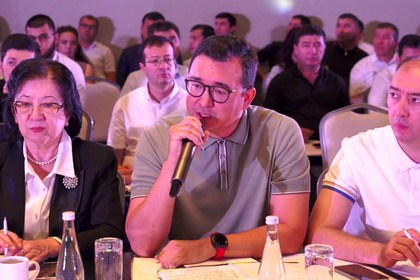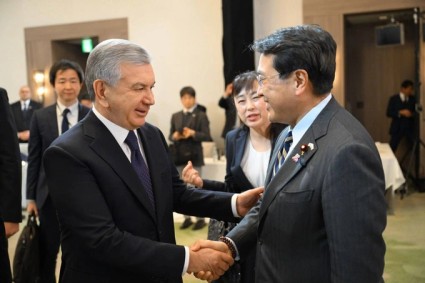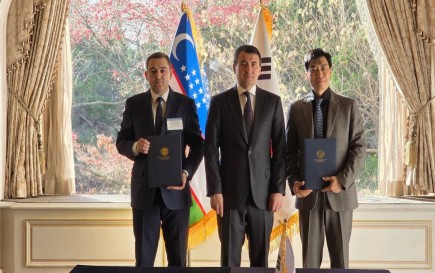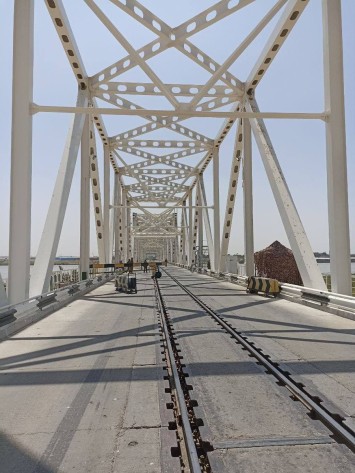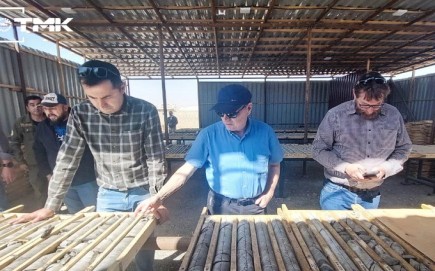ADM Jizzakh has proposed to return duties on the import of electric vehicles to Uzbekistan. This was stated today at an open dialogue with business leaders in the automotive and electrical engineering sectors by the CEO of the ADM Jizzakh automobile plant and founder of Roodell (which owns the plant) Daniyar Davletiyarov.
According to him, due to the gradual liberalization of the Uzbek automobile market, there are a number of large automobile plants - UzAuto Motors with a production capacity of 350 thousand cars, BYD (50 thousand) and ADM Jizzakh (100 thousand). The volume of investments in the industry is about 1.5 billion dollars, 90% of which are directed to the production of cars with an internal combustion engine (ICE).
He believes that "the problem in this area is serious, but there is no regulatory body."
"If last year new car sales topped 405 thousand cars, then due to all the liberalization this year we expect a decrease in production rates, the sold products will be about 350 thousand, according to our estimates... Why is this happening? We ask for support from manufacturers in terms of car loans, but the Central Bank has introduced an unspoken restriction on issuing car loans to buyers," he said.
In his opinion, the Uzbek car market is "oversaturated and overheated", due to which he proposed regulating the import of finished cars by individuals.
"And the demands are completely different. If we certify a car in a full cycle, conducting annual tests, passing more than 60 requirements of European standards, then 99% of imported products come from China, naturally, the Chinese market is overheated and overproduction, prices are much lower, they have a trade war. Chinese cars do not undergo certification in Uzbekistan, but how this is done for individuals is not assessed in any way," said Daniyar Davletiyarov.
He also proposed to return the procedure for importing vehicles through official dealers. Although the Cabinet of Ministers' resolution was never officially adopted, importers of electric vehicles indicated the introduction of restrictions.
While, the CEO of ADM Jizzakh complained that they had to pay duties on imported components and goods. At the same time, suppliers of electric vehicles do not pay similar duties, he noted.
"Today, there is no point in producing a pure electric vehicle in Uzbekistan, because there are no duties. Production will be more expensive, since we must pay import duties on the production and import of parts and components - we cannot localize everything 100% - "- Davletiyarov said.
He added that "it is time to whitewash the market" and introduce "certain duties," including new certification requirements, for newly imported electric vehicles, which are mostly from China and "do not meet local technical requirements."
Daniyar Davletiyarov said that the plant plans to reduce car production by 9,000 (40,000 were planned) and reduce staff by 500 people, which will result in the budget losing more than 1 trillion soums in tax revenues.
The ADM Jizzakh car plant vows to launch hybrid cars and electric models in Uzbekistan by mid-2027. The volume of investments is expected to increase to $550 million, and budget revenues to $700 million, which should allow the company to enter the top 5 largest taxpayers in the country.
In March, it became known about a possible restriction on the unofficial import of cars from the Chinese BYD. The March 18 presidential decree approving the an investment agreement for the launch of electric and hybrid models in Uzbekistan contains a item stating that the investor, BYD, has asked the government of Uzbekistan "to limit the unregulated import of electric vehicles that do not meet local climate and road conditions, and do not have an official guarantee." The president instructed to submit proposals to the government by July 1 aimed at implementing the investor's requirement "based on current legislation, including competition laws, as well as the principles of the World Trade Organization."
BYD representative Ivan Cao commented on this matter that unofficially imported vehicles have not been tested for compliance with the local climate and environment, may not meet official export standards, and are not covered by the guarantee. Making irreversible changes to vehicles may "carry a hidden danger to long-term safe use."
In 2019, electric vehicles imported to Uzbekistan were exempted from customs duties, excise taxes, and vehicle fees. After this, the import of electric vehicles into the country increased many times and exceeded 22 thousand units in the first 10 months of 2023.

